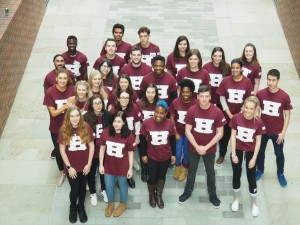Philanthropy is one of the UK’s great traditions. As Shirley Pearce’s report on philanthropy in higher education points out, from medieval through Victorian to modern times, generous donations have facilitated the development of academic institutions. Philanthropy enabled them to become internationally successful and to play their part in economic, social and cultural success. But if the tradition of philanthropy is well-established, the practice is changing rapidly across universities. Just a decade or so ago, philanthropy in higher education was characterised by a few well-known institutions attracting support from a relatively small number of benefactors. Now, fundraising is expanding dramatically as universities explore the transformative role philanthropy can play, and the benefits it affords students and academics through increased engagement between institutions and donors. It has become more important as public support – and notably public support for higher education capital development – has receded. Moreover, it turns out that engaging a wider community around development activity involves much more than fundraising. It is an active way of building an alumni community which creates opportunities to link current students with their forbears, opening up placement, mentoring and wider opportunities. It can cement the idea of a wider university community, encompassing not just students and staff but also those who have a long-lasting relationship with the university and its mission.
As I write this, The Hallam Fund telephone campaign is underway, running from 26 February to 26 March 2017. The campaign runs annually and aims to raise £250,000 over five years through regular donations and relatively modest single gifts. The Hallam Fund provides additional and much-needed support to our student and academic community so they can overcome barriers, access the best opportunities and take on some of society’s greatest issues. It supports research and teaching, staff and students. The funds raised through the Hallam Fund telephone campaign will support Students from disadvantaged and under-represented backgrounds, particularly those leaving foster care, students who have carer responsibilities, and students who face estrangement from their loved ones and communities. It will provide Opportunity bursaries which ensure all students can access career-enhancing and inspiring opportunities regardless of their background and financial situation. And it will fund Transformational research to ensure our researchers tackle some of the biggest challenges that we face across society today.
The campaign is designed to build stronger relationships and foster good will with our alumni, while introducing them to the prospect of giving back by making a donation – or other offers of support, such as mentoring students or offering students work experience. During last year’s inaugural telephone campaign, our student ambassadors had meaningful conversations with over 1400 alumni; 261 of these alumni offered to support by providing students work experience opportunities and mentoring, and over £75,000 was pledged in donations over a five year giving period. This type of giving is important as it creates a culture of giving and enables everyone the opportunity to contribute and feel like they are part of a growing community making a difference.
For this year’s campaign, twenty-eight student ambassadors have been selected from over 130 applicants, through a competitive recruitment process to be Fundraising and Engagement Ambassadors for this year’s Hallam Fund telephone campaign. I did some work with this years’ ambassadors a couple of weekends ago as part of their training weekend. They were fabulous – lively, asking challenging questions, but the most articulate and impressive of ambassadors for the University, with a strong understanding of the values and mission of the University and – in most cases – a strong personal story of the strengths of the University. Their training is designed to prepare them well for their work – itself increasingly against a stronger regulatory background for charitable fundraising. The training included briefing them on why fundraising is important, what donations support and what impact donations have, as well as intensive training on the campaign script, how to structure an enjoyable and effective call and put forward our case for support. I’ll be visiting a Hallam Fund call shift tomorrow evening (14 March); the experience of doing that last year was a real highlight and an opportunity to engage directly with some of our alumni.
This is not the only feature of this year’s Hallam Fund campaign. Forty staff members will be running the Sheffield Half Marathon on Sunday 9 April to raise money for the Hallam Fund. They, too, will be raising money for students from care backgrounds, students estranged from their families and young carers. You can sponsor #TeamHallam and your colleagues by making a donation here.
As the financial context for higher education changes, it’s increasingly clear that our alumni and development work plays an ever greater role in our ability to realise our mission. For all the ways in which the headlines are made nationally and internationally by single large gifts, the heavy lifting on philanthropy is made through intensive work on smaller gifts, mobilising the Hallam community.
